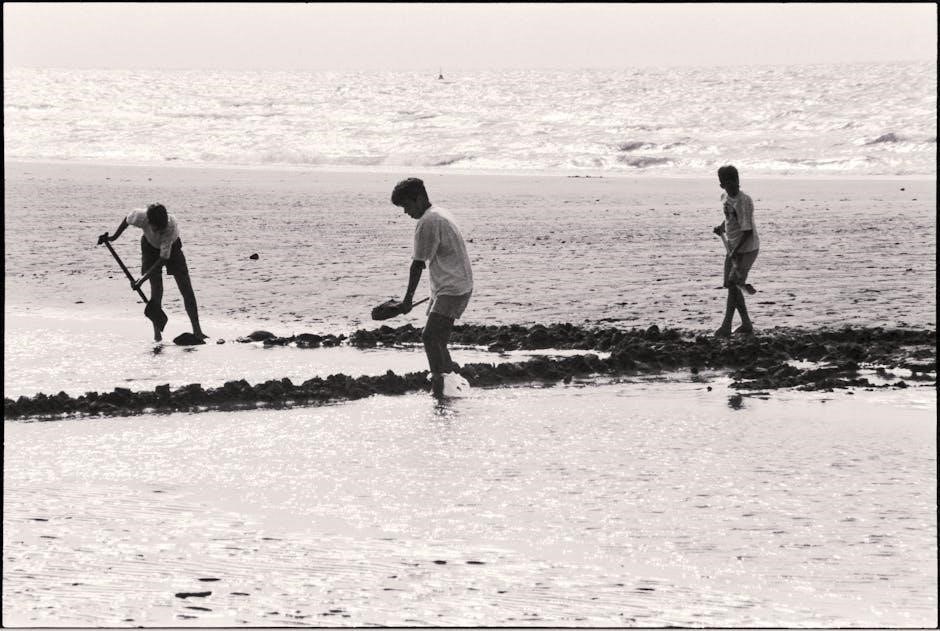The Laramie Project, a play by Moisés Kaufman and the Tectonic Theater Project, explores the community’s reaction to Matthew Shepard’s tragic murder in 1998.
Based on real interviews, the play highlights themes of hate, tolerance, and collective responsibility, offering a powerful commentary on societal issues.
1.1 Overview of the Play
The Laramie Project, written by Moisés Kaufman and the Tectonic Theater Project, is a documentary-style play based on interviews with Laramie residents after Matthew Shepard’s murder.
It examines the community’s reaction, exploring themes of hate, tolerance, and collective responsibility, while shedding light on LGBTQ+ issues and societal attitudes.
The play’s script, available in PDF format, is widely used in educational settings, offering a poignant and thought-provoking exploration of human response to tragedy.
Its structure, blending personal narratives and factual accounts, creates a powerful commentary on justice, morality, and social change.
1.2 Historical Context: The Murder of Matthew Shepard
Matthew Shepard, a gay University of Wyoming student, was brutally murdered on October 6, 1998, in Laramie, Wyoming. His death shocked the nation, sparking widespread outrage and conversations about hate crimes and LGBTQ+ rights.
The incident became a catalyst for the creation of The Laramie Project, a play that examines the community’s response to the tragedy. Shepard’s murder remains a pivotal moment in the fight against hate and discrimination, continuing to resonate deeply in American society and beyond.
Structure and Style of the Play
The Laramie Project employs a unique documentary style, using verbatim interviews to recount the community’s reactions to Matthew Shepard’s murder, creating a gripping reflection of real events.
2.1 Documentary Theatre and Its Significance
Documentary theatre, as seen in The Laramie Project, uses real-life events and interviews to create a factual narrative. This style amplifies the emotional impact by presenting unfiltered truths, making audiences confront harsh realities. The play’s reliance on verbatim testimonies ensures authenticity, fostering empathy and reflection. By blending fact and performance, it challenges societal norms and provokes dialogue on issues like hate crimes and intolerance, making it a powerful tool for raising awareness and promoting change. This approach underscores the importance of storytelling in addressing human rights and fostering understanding.
2.2 The Role of Interviews in the Play
The interviews in The Laramie Project are central to its narrative, offering diverse perspectives on Matthew Shepard’s murder. These testimonies, collected by the Tectonic Theater Project, provide personal insights into the community’s reactions, ranging from shock to reflection. The interviews humanize the event, revealing complexities of grief, guilt, and resilience. They serve as a catalyst for dialogue, allowing the audience to connect deeply with the story and its broader implications. This approach ensures the play remains a poignant exploration of human response to tragedy and societal change.

Key Themes and Messages
The Laramie Project examines hate crimes, intolerance, and the profound impact of Matthew Shepard’s murder on the community, sparking reflection on humanity and social change.
3.1 Exploring Hate Crimes and LGBTQ+ Issues
The Laramie Project delves into the horrific murder of Matthew Shepard, a gay student, exposing the deep-seated hatred and homophobia prevalent in society. Through real-life testimonies, the play highlights the broader issues of LGBTQ+ discrimination and the devastating consequences of hate crimes. It challenges audiences to confront their own biases and consider the importance of acceptance. The play serves as a powerful tool to spark conversations about tolerance and human rights, emphasizing the need for change in a society often divided by fear and misunderstanding.
3.2 Community Reaction and Collective Guilt
The Laramie Project examines the varied reactions of Laramie’s residents to Matthew Shepard’s murder, revealing a mix of shock, denial, and introspection. The play portrays a community grappling with collective guilt, as some residents confront their complicity in fostering an environment of intolerance. Others struggle to reconcile their identities with the town’s reputation, sparking a broader dialogue about responsibility and moral accountability. This exploration highlights the complexities of human response to tragedy and the difficult journey toward healing and understanding.

Production History
The Laramie Project premiered in Denver in 2000 and later in New York City in 2002, sparking widespread acclaim and reflection on its poignant themes.
4.1 The Original Production and Its Impact
The original production of The Laramie Project premiered in Denver in 2000, directed by Moisés Kaufman, and later opened in New York City in 2002. Based on interviews with Laramie residents, the play sparked national conversations about hate crimes and LGBTQ+ rights. Its powerful narrative resonated deeply, leading to widespread critical acclaim and numerous performances across the U.S. The production became a catalyst for dialogue, inspiring over 10,000 productions worldwide and solidifying its place as a significant work in contemporary theatre.
4.2 Notable Adaptations and Performances
The Laramie Project has been adapted into a film directed by Moisés Kaufman for HBO in 2002, winning a GLAAD Media Award. The play has been performed by schools, community theatres, and professional companies worldwide, including notable productions in New York, Los Angeles, and London. Its universal themes have made it a staple in theatrical repertoire, with over 10,000 productions staged globally. The play’s impact continues to grow, fostering dialogue and awareness about hate crimes and social justice.

The Film Version
The Laramie Project was adapted into a film in 2002, directed by Moisés Kaufman for HBO. It won the GLAAD Media Award, highlighting its impactful storytelling and reception.
5.1 Transition from Stage to Screen
The Laramie Project seamlessly transitioned from stage to screen in 2002, directed by Moisés Kaufman for HBO. The film retained the documentary-style interviews and testimonies, preserving the play’s raw emotional impact. Cinematic techniques enhanced the storytelling, translating the theatrical intimacy into a broader visual narrative. The adaptation stayed true to the original’s intent, capturing the community’s responses to Matthew Shepard’s murder. This transition ensured the play’s powerful message reached a wider audience, maintaining its cultural and emotional resonance. The film’s success underscored the project’s enduring relevance.
5.2 Awards and Reception of the Film
The Laramie Project film received critical acclaim and numerous awards, including the GLAAD Media Award for Outstanding TV Movie. The film was praised for its faithful adaptation of the stage play, maintaining the emotional depth and authenticity of the original interviews. Audiences and critics alike commended its thought-provoking narrative and impactful storytelling. The film’s success highlighted its ability to transcend mediums, resonating with a broader audience and continuing the important conversation about hate crimes and LGBTQ+ rights. Its recognition solidified the project’s cultural significance.

Educational Significance
The Laramie Project is widely used in schools and universities to educate students about hate crimes, LGBTQ+ issues, and community responses to tragedy.
6.1 Use in Schools and Universities
The Laramie Project is frequently incorporated into school and university curricula to foster discussions on hate crimes, LGBTQ+ rights, and social justice. Its documentary style makes it an invaluable tool for teaching critical thinking and empathy. Many educational institutions use the play to address real-world issues, encouraging students to reflect on tolerance and community responses to tragedy. The play’s availability as a PDF enhances accessibility for students and educators, making it a popular choice for academic exploration and theatrical performance.
6.2 Controversies and Challenges in Performance
The Laramie Project has faced challenges due to its sensitive themes, including LGBTQ+ issues and hate crimes. Some schools and communities have canceled performances, citing concerns about mature content. For instance, productions at Keller High School and Timber Creek High School were halted due to parental objections. The play’s exploration of real events and emotional content can stir controversy, requiring schools to balance artistic expression with community sensitivities. These challenges highlight the play’s power to provoke dialogue and reflect societal tensions.

The Script and PDF Availability
The Laramie Project script is widely available as a PDF through platforms like Dramatists Play Service, ensuring easy access for theatrical productions and educational purposes.
7.1 Accessing the Play Script
The script of The Laramie Project is readily available in PDF format through various platforms. It can be downloaded from the Dramatists Play Service, which offers authorized copies for theatrical and educational use. Additionally, the PDF version can be accessed through online repositories and educational websites, ensuring widespread availability for study and performance. Purchasing from legitimate sources guarantees legal and ethical access to the material, supporting the playwrights and the Tectonic Theater Project.
7.2 Legal and Ethical Considerations for Downloading
Downloading The Laramie Project script requires adherence to copyright laws. Only purchase or download from authorized sources like Dramatists Play Service to ensure legality. Unauthorized distribution or sharing violates intellectual property rights and undermines the creators’ efforts. Ethical access supports the arts and promotes fair compensation for playwrights and producers. Always verify the source’s legitimacy to avoid legal consequences and respect the work’s copyright protections.

The Legacy of “The Laramie Project”
The Laramie Project has profoundly influenced theatre and activism, fostering dialogue on hate crimes and LGBTQ+ rights. Its legacy continues through educational performances and “The Laramie Project: Ten Years Later,” ensuring Matthew Shepard’s story remains a powerful tool for change and reflection in communities worldwide.
8.1 Social Impact and Awareness
The Laramie Project has sparked significant social change by addressing hate crimes and LGBTQ+ rights, raising global awareness through its powerful narrative. The play’s emotional impact has fostered dialogue in communities, encouraging reflection on tolerance and human rights. Its educational value has made it a tool for schools and universities, promoting empathy and understanding. By sharing real stories, it has challenged societal norms, inspiring advocacy and fostering a more inclusive world. Its influence continues to resonate, making it a pivotal work in modern theatre and activism.
8.2 Influence on Theatre and Activism
The Laramie Project has become a pivotal work in documentary theatre, influencing the genre and inspiring similar projects worldwide. Its raw, interview-based format has reshaped how stories of social justice are told on stage. The play has also fueled activism, particularly in the LGBTQ+ community, by sparking conversations about hate crimes and discrimination. Its educational use in schools and universities has further cemented its role in fostering empathy and promoting change, making it a cornerstone of both theatrical innovation and social advocacy.
The Laramie Project remains a powerful exploration of hate, tolerance, and community, continuing to educate and inspire audiences, ensuring Matthew Shepard’s legacy endures in advocating for equality and justice.
9.1 Final Thoughts on the Play’s Relevance
The Laramie Project remains a poignant and timely work, urging audiences to reflect on hate, tolerance, and human empathy. Its documentary style ensures authenticity, making it a vital tool for education and dialogue. The play’s exploration of community response and collective guilt resonates deeply, fostering conversations about social justice and LGBTQ+ rights. As a theatrical piece, it continues to inspire change, reminding us of the importance of understanding and compassion in addressing societal divides and fostering a more inclusive world.
9.2 Call to Action for Further Engagement
Engage with The Laramie Project by reading the play or attending a performance to deepen your understanding of its powerful message. Share its themes with others to spark conversations about hate crimes and LGBTQ+ rights. Support organizations advocating for equality and consider participating in local theater productions to amplify its impact. Educators are encouraged to incorporate the play into curricula to foster empathy and critical thinking among students. Together, we can continue Matthew Shepard’s legacy of promoting love and acceptance.

References and Further Reading
Access the full script of The Laramie Project via PDF from Dramatists Play Service or online platforms like SparkNotes for analysis and educational purposes.
10.1 Recommended Sources for Deeper Understanding
For a comprehensive analysis, refer to the PDF script from Dramatists Play Service, which includes the full text and stage directions. Additionally, SparkNotes offers detailed summaries and analysis of key themes, characters, and scenes. The Tectonic Theater Project’s official website provides insights into the play’s creation and historical context. Academic articles on platforms like JSTOR explore the play’s impact on LGBTQ+ advocacy and its role in documentary theatre. These resources enrich understanding and provide a deeper connection to the play’s message.
10.2 Additional Resources for Study
PDF downloads of the play are available through platforms like Dramatists Play Service and educational websites. SparkNotes and CliffsNotes offer in-depth analyses, study guides, and essay topics. The official Tectonic Theater Project website provides interview transcripts and behind-the-scenes insights. Academic journals on JSTOR discuss the play’s cultural impact, while YouTube interviews with Moisés Kaufman and cast members offer unique perspectives. These resources are invaluable for students and researchers seeking a deeper understanding of the play’s significance and historical context.
